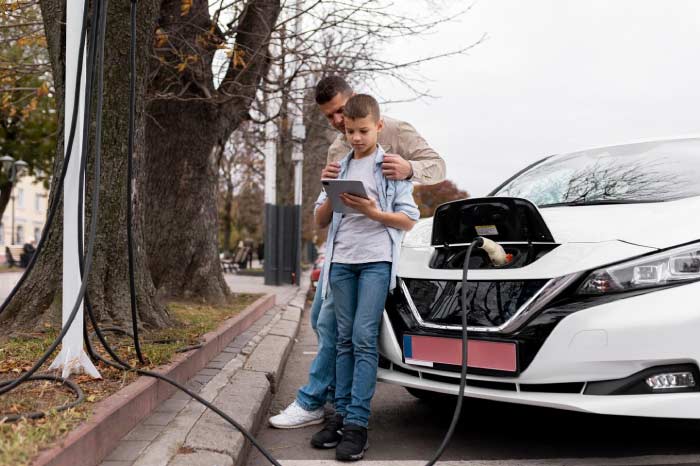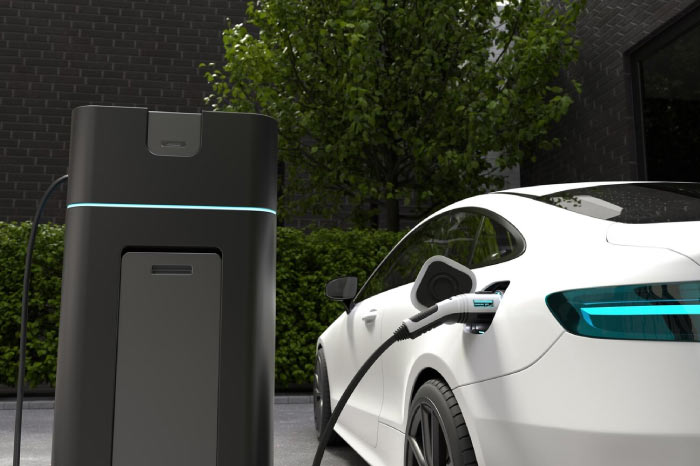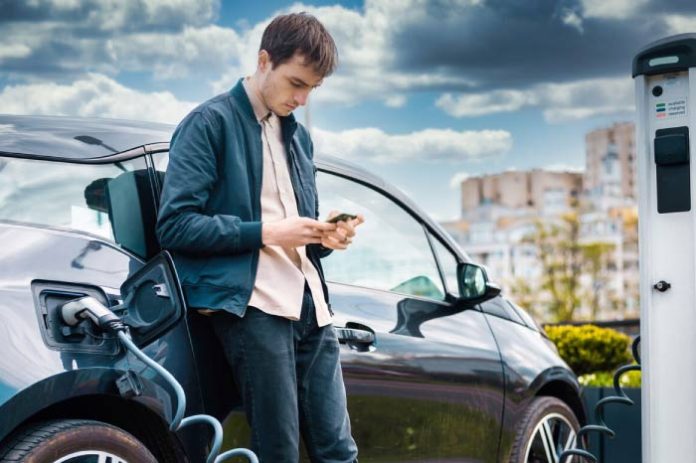Owning an electric vehicle (EV) aligns with eco-conscious choices, yet cost-efficient charging remains a prime concern for EV owners worldwide. Here’s a comprehensive guide to saving money while charging your EV.
Understanding Electric Vehicle Charging Costs

The key to saving on EV charging lies in comprehending the diverse pricing structures at different EV charging stations. Some stations charge a flat rate per session, while others calculate charges based on electricity consumption measured in kilowatt-hours (kWh). Knowing the cost per kWh is pivotal in estimating charging expenses accurately.
Moreover, it’s essential to factor in demand charges, especially during peak power demand hours. Scheduling charging sessions during off-peak hours, when electricity rates are lower, mitigates these expenses significantly. Exploring stations offering discounted rates during specific time windows further contributes to substantial savings.
Optimizing Charging Times for Cost Efficiency
Aligning your charging routine with off-peak hours, when electricity demand is minimal, can notably reduce charging costs. Many utility companies offer discounted rates during these periods, translating to substantial savings on your charging bills. To determine off-peak hours in your locality, consulting your utility provider’s website or contacting them directly is advisable.
Exploring Incentives and Rebates
Numerous governmental bodies, utility companies, and organizations extend incentives and rebates for EV charging. These initiatives often offset costs associated with purchasing and installing home charging stations or provide discounts on public charging fees. Researching available incentives in your area can lead to considerable savings.
In addition to governmental and utility incentives, various charging networks offer rewards programs or discounts for frequent users. These programs present benefits such as reduced charging rates, complimentary sessions, or exclusive access to select stations. Exploring these avenues further minimizes EV charging costs.
Additional Strategies for Savvy Charging

Comparing Public Charging Rates: Before plugging in, utilize apps to compare rates at different public charging stations. Understanding pricing structures empowers cost-effective choices.
Car-Sharing Programs: Consider joining car-sharing programs, particularly if your EV isn’t in daily use. Many such programs offer discounted rates for EV members, presenting an economical alternative.
Efficient Driving Practices: Implementing efficient driving habits significantly impacts energy consumption and charging costs. Strategies such as avoiding rapid acceleration and braking, maintaining a steady speed, utilizing regenerative braking, making conservative use of air conditioning, and planning trips to evade congestion contribute to extending your EV’s range and reducing charging expenses.
Exploring Home Charging Efficiency
Investing in a home charging setup can offer substantial long-term savings. While the initial installation costs might seem daunting, a Level 2 charger at home ensures faster charging compared to standard Level 1 chargers. This option not only provides convenience but also allows you to benefit from lower electricity rates available during off-peak hours. Furthermore, exploring renewable energy sources like solar panels for home charging can significantly reduce reliance on grid electricity, resulting in even greater cost savings and a greener charging solution.
Community Charging Initiatives
Some communities or homeowner associations are adopting shared charging stations. Collaborative efforts to install and maintain communal charging facilities can lead to reduced costs for participants. Sharing charging infrastructure not only lessens the financial burden but also promotes a sense of community involvement in sustainable practices.
Future-Proof Charging Solutions

As technology evolves, staying updated on advancements in charging infrastructure is crucial. Future-proofing your charging setup with smart chargers or platforms offering demand response programs can optimize charging times and lead to savings. These advanced systems allow users to schedule charging during times of lower electricity demand or when rates are most favorable, improving cost efficiency. For businesses looking to upgrade their charging options, ACP’s charging solutions for a business make it easier to manage charging schedules and keep energy costs down.
Cost Considerations Beyond Charging
In addition to charging expenses, it’s essential to factor in other cost-saving aspects of EV ownership. Reduced maintenance costs, owing to fewer moving parts in electric vehicles, and potential tax incentives or rebates for EV ownership also contribute to the overall cost-effectiveness of owning an electric vehicle.
The Bottom Line
By integrating these strategies into your EV ownership journey, you not only economize on charging costs but also maximize the advantages of being an electric vehicle owner. Enjoy the ride while keeping your finances in check.





